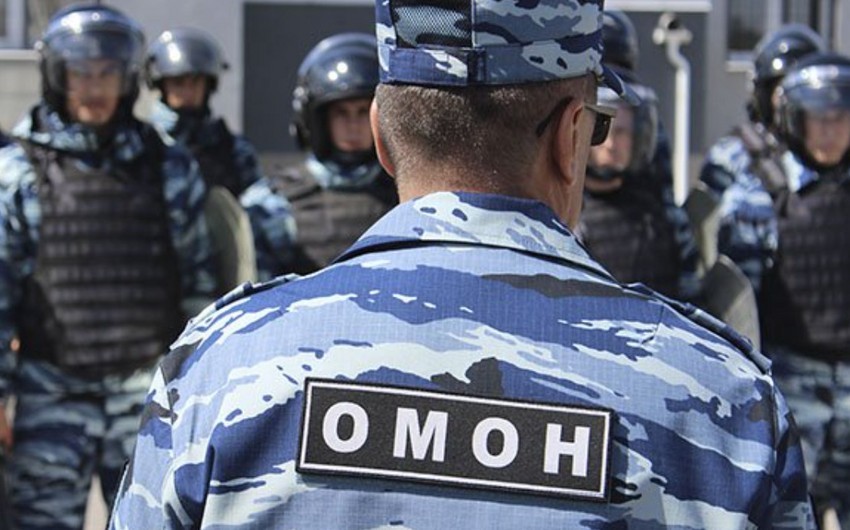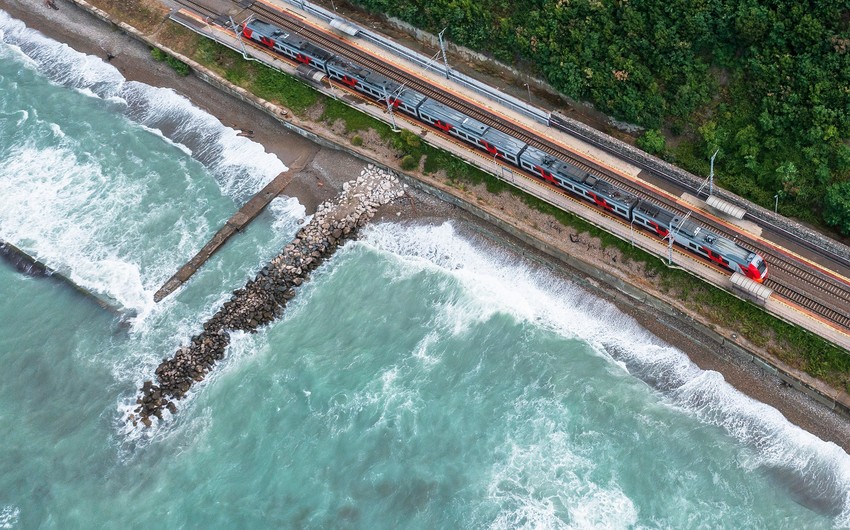According to a new agreement between IAEA and Iran, the International Atomic Energy Agency (IAEA) will soon install new surveillance cameras at Iran’s Karaj centrifuge component manufacturing workshop under an agreement reached today by Director General Rafael Mariano Grossi and the Head of the Atomic Energy Organization of Iran, Mohammad Eslami.
The cameras, to be installed in coming days, will replace those that were removed from the Karaj facility earlier this year. In addition, the Agency and Iran will continue to work on remaining outstanding safeguards issues with the aim of resolving them.
To clarify this issue, Eurasia Diary presents an interview with Mehmet Koç, Turkish expert on Iranian studies.

- You know that European countries and the United States demand that Iran return to the negotiations on the nuclear issue with the members of 5 +1 platform. On the other side, Israel is also seriously interested in striking nuclear objects and centrifuges in Iran. Please tell us, what main reasons forced Iranian regime to come to an agreement with IAEA on Karaj nuclear facility? Do you think that Tehran has been forced to allow the experts of IAEA to install cameras in Karaj nuclear object?
- As you know, the negotiations started in Vienna between Iran and 5+1 directly and indirectly with the US during the Rouhani era, have started again on 29 November with the newly elected Raisi's government. Although partial progress was achieved in the negotiations, which took place in 6 rounds during the Rouhani era, critical thresholds could not be overcome due to the upcoming elections in Iran. On the other hand, the Biden administration was also in favor of continuing negotiations with the Reisi government instead of the Rouhani government, which had no chance. The new Iranian government, unlike Rouhani, has sat at the negotiating table with the support of the Iranian establishment. However, although Iran has fulfilled its responsibilities arising from the nuclear agreement, US President D. Trump unilaterally withdrew from the nuclear agreement in May 2018 and introduced very harsh sanctions against Iran. Thus, Iran began to suspend its commitments in the agreement a year later. In this process, Iran has reactivated the uranium enrichment program, which is one of the most critical issues of the agreement and has reached 60%, well above the 3.67% stipulated in the agreement.
On the other hand, Iran has stopped the access of the IAEA, which is also one of the important parties of the agreement, to the cameras, it has placed in its nuclear facilities to monitor the Iranian nuclear program continuously. Therefore, the international community, especially the parties to the agreement, started to worry about the progress of Iran's nuclear program. In particular, Israel interpreted the statements of the Supreme Leader and former President Rouhani as "if necessary, we will increase the uranium enrichment program to 90%" as Tehran is trying to reach the nuclear bomb. This caused serious concerns in Israel. That's why Tel Aviv has announced that it has started various preparations to target Iranian nuclear facilities with a limited-scale attack if the US and the parties to the agreement cannot stop Iran. Israeli and US officials recently met in Washington to discuss this issue. The talks between Israel and the USA can indirectly force Iran to make the expected concessions. The IAEA's installation of surveillance cameras at nuclear facilities in Karaj should be considered a limited concession. Thus, Iran aims that the IAEA does not refer the file to the UN Security Council at a time when the IAEA convenes in an extraordinary manner and declares that Iran's nuclear activities are at an uncontrollable point.
- Do you think that the new agreement between Iran and IAEA will reduce the tension between Iran and West?
- Yes. The fact that Iran made this concession at this stage would ease the tension, even for a short time. Also, the fact that the IAEA held an extraordinary meeting and stopped the process of transferring the file to the UNSC by holding a negative report on the Iranian nuclear program made a significant contribution to the continuation of the negotiations. Thus, an opportunity has been created for Iran and especially Western countries, but also for Russia and China, which are parties to the agreement, to better understand each other's expectations for now.
- The White House stated that the United States would lift some of sanctions on Iran if Tehran agrees to return to the table of negotiations. However, according to some speculations, the United States and Iran have come to some agreements in the backdrop negotiations. From your opinion, to what extent could it be true?
- Iran does not negotiate directly with the United States. This naturally makes the process a complex and challenging one. Since the US left the agreement, it is left out of the 5+1. That's why talks between Iran and the United States continue indirectly. It is unlikely that the parties will reach a comprehensive consensus any time soon. Because Iran wants assurances from Washington so that the next US administration cannot arbitrarily withdraw from the agreement, to re-enforce its commitments in return for Iran lifting sanctions from the US and returning to the agreement. It is unlikely that the Biden administration will fulfill this request in the current situation. Because next year, Republicans have made it clear that if they get a majority in Congress, they will cancel the nuclear deal, even if the Biden administration and Iran revived it. Therefore, it would not be wrong to say that Iran and the USA will wait for the results of the Congress elections to reach a comprehensive reconciliation. This means the end of 2022. Therefore, it is possible to say that the negotiations between Iran and the USA will continue at certain intervals, only by making limited mutual concessions until then. As mentioned at the beginning, we can cite the agreement reached between Iran and IAEA on installing surveillance cameras in Karaj nuclear facilities as an example of the concessions to be made in this process.
Yunis Abdullayev









